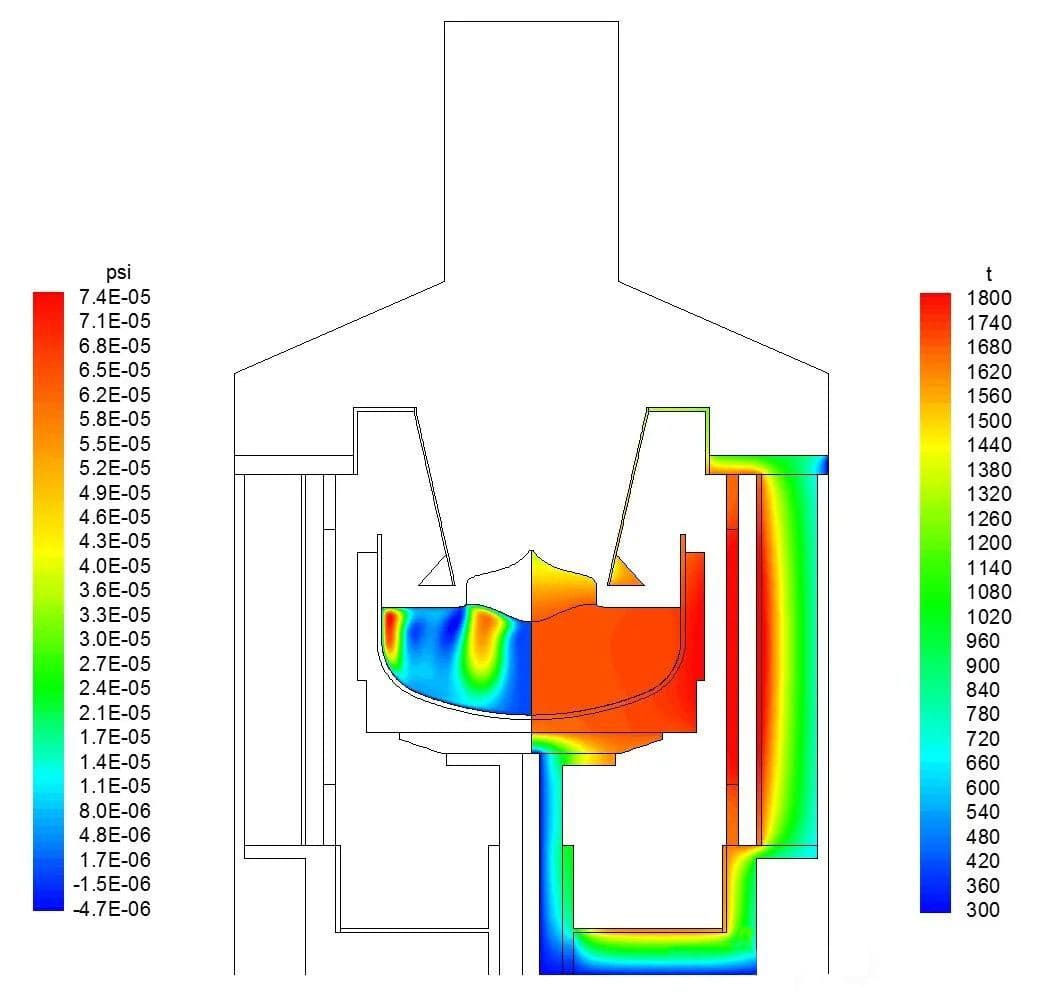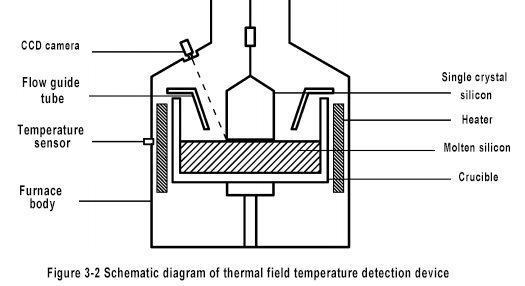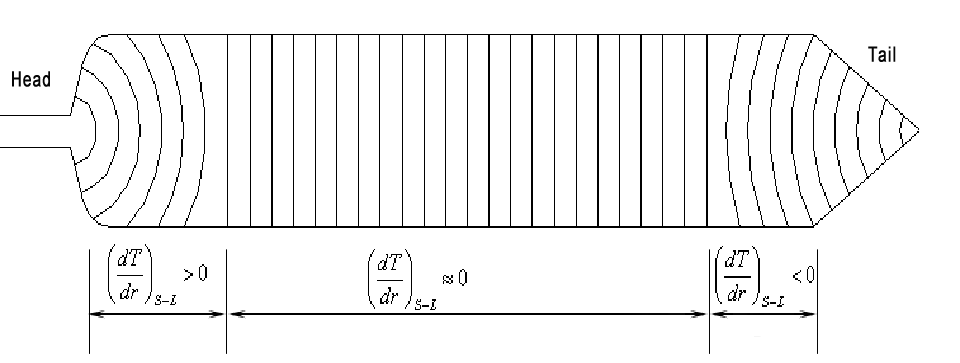
- English
- Español
- Português
- русский
- Français
- 日本語
- Deutsch
- tiếng Việt
- Italiano
- Nederlands
- ภาษาไทย
- Polski
- 한국어
- Svenska
- magyar
- Malay
- বাংলা ভাষার
- Dansk
- Suomi
- हिन्दी
- Pilipino
- Türkçe
- Gaeilge
- العربية
- Indonesia
- Norsk
- تمل
- český
- ελληνικά
- український
- Javanese
- فارسی
- தமிழ்
- తెలుగు
- नेपाली
- Burmese
- български
- ລາວ
- Latine
- Қазақша
- Euskal
- Azərbaycan
- Slovenský jazyk
- Македонски
- Lietuvos
- Eesti Keel
- Română
- Slovenski
- मराठी
- Srpski језик
What is the temperature gradient of the thermal field of a single crystal furnace?
2024-09-09
What is the thermal field?
The temperature field of single crystal growth refers to the spatial distribution of temperature in a single crystal furnace, also known as the thermal field. During calcination, the temperature distribution in the thermal system is relatively stable, which is called a static thermal field. During the growth of a single crystal, the thermal field will change, which is called a dynamic thermal field.
When a single crystal grows, due to the continuous transformation of the phase (liquid phase to solid phase), the solid phase latent heat is continuously released. At the same time, the crystal is getting longer and longer, the melt level is constantly dropping, and the heat conduction and radiation are changing. Therefore, the thermal field is changing, which is called a dynamic thermal field.

What is the solid-liquid interface?
At a certain moment, any point in the furnace has a certain temperature. If we connect the points in the space with the same temperature in the temperature field, we will get a spatial surface. On this spatial surface, the temperature is equal everywhere, which we call an isothermal surface. Among the isothermal surfaces in the single crystal furnace, there is a very special isothermal surface, which is the interface between the solid phase and the liquid phase, so it is also called the solid-liquid interface. The crystal grows from the solid-liquid interface.

What is temperature gradient?
The temperature gradient refers to the rate of change of the temperature of a point A in the thermal field to the temperature of a nearby point B. That is, the rate of change of temperature within a unit distance.

When single crystal silicon grows, there are two forms of solid and melt in the thermal field, and there are also two types of temperature gradients:
▪ The longitudinal temperature gradient and radial temperature gradient in the crystal.
▪ The longitudinal temperature gradient and radial temperature gradient in the melt.
▪ These are two completely different temperature distributions, but the temperature gradient at the solid-liquid interface that can most affect the crystallization state. The radial temperature gradient of the crystal is determined by the longitudinal and transverse heat conduction of the crystal, the surface radiation and the new position in the thermal field. Generally speaking, the center temperature is high and the edge temperature of the crystal is low. The radial temperature gradient of the melt is mainly determined by the heaters around it, so the center temperature is low, the temperature near the crucible is high, and the radial temperature gradient is always positive.

A reasonable temperature distribution of the thermal field needs to meet the following conditions:
▪ The longitudinal temperature gradient in the crystal is large enough, but not too large, to ensure that there is enough heat dissipation capacity during crystal growth to take away the latent heat of crystallization.
▪ The longitudinal temperature gradient in the melt is relatively large, ensuring that no new crystal nuclei are generated in the melt. However, if it is too large, it is easy to cause dislocations and breakage.
▪ The longitudinal temperature gradient at the crystallization interface is appropriately large, thereby forming the necessary undercooling, so that the single crystal has sufficient growth momentum. It should not be too large, otherwise structural defects will occur, and the radial temperature gradient should be as small as possible to make the crystallization interface flat.
VeTek Semiconductor is a professional Chinese manufacturer of SiC Crystal Growth Porous Graphite, Monocrystalline pulling Crucible, Pull Silicon Single Crystal Jig, Crucible for Monocrystalline Silicon, Tantalum Carbide Coated Tube for Crystal Growth. VeTek Semiconductor is committed to providing advanced solutions for various SiC Wafer products for the semiconductor industry.
If you are interested in the above products , please feel free to contact us directly.
Mob: +86-180 6922 0752
WhatsAPP: +86 180 6922 0752
Email: anny@veteksemi.com



